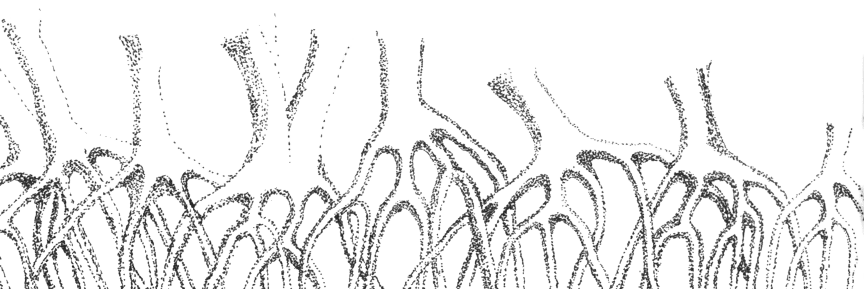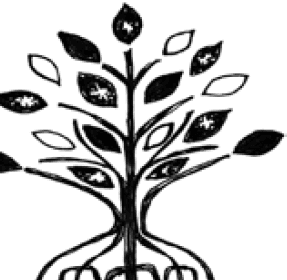Mainstreaming Violence Against Women and Children in Marjorie Evasco’s “Caravan of the Waterbearers”
Pilar Ramos Jimenez
Marjorie “Marj” Evasco, the multi-awarded national and international poet, is a highly respected university fellow and a well-loved De La Salle University (DLSU) professor at the Literature Department. Although we do not belong to the same department, we became fast friends mainly because we are migrants from the south, and we both speak Cebuano. I truly admire Marj not only for her outstanding work in her field but also for her sincerity in relating with her students and colleagues and to the social scientists of the Behavioral Sciences Department (BSD), where I belong. I did ask a colleague what traits she remembers most about Marj, and without hesitation, she described her as “gentle and kind.”
Marj does not only excel in poetry, but she is also a very good editor. I want to express my gratitude to her for her excellent job in editing some of our books at the Social Development Research Center (SDRC). I recall how genuinely interested she was in our research regarding the culture, healing practices, and involvement in public health by an indigenous community when she edited our book entitled “Community participation in the delivery of basic health services: The Case of the Hanunuo Mangyans of Oriental Mindoro, Philippines” (co-authored in 1988 with Trinidad S. Osteria, Alicia Manlagnit, Orlando Marinas and Jonathan Okamura).
Her advice to deploy a professional photographer from Manila to Nueva Vizcaya provided SDRC with illustrative pictures of the province’s innovative programs and activities as well as its spectacular landscape and forests for our book “Celebrating participatory governance in Nueva Vizcaya,” which I co-authored with Saniata Masulit and Ysa Mendoza, BSD’s Master of Health Social Science graduates. This attractive and substantive book that involved the Novo Viscayanons in local governance was written for SDRC’s 25th anniversary celebration. It was a finalist at the 24th National Awards of the Most Outstanding Philippine Books by the Manila Critics Circle in 2004.
It is exhilarating to know that Marj writes poems not only in English but also in Cebuano, a language that touches me most because it is my mother tongue. She writes beautifully about nature, the environment, poverty, friendship, community, and family. Her Cebuano is much richer and deeper than mine because there are some nuances in the Cebuano language in the Visayas and in Mindanao, where I come from.
Marj is recognized as a champion of women writers because she has actively created two local organizations supporting female writers’ advocacy. She has also integrated women’s issues into some of her poems.
One of her earlier poems that moved me and many readers worldwide is “Caravan of the Waterbearers.” Although written over three decades ago, this poem illustrates a timeless issue about violence against women and children (VAWC). I am interpreting the message Marj conveys in her poem from the social science lens and as an advocate for gender, reproductive health (RH), and rights. The first stanza poignantly states that women suffer silently from violence to protect their children from harm because they are powerless from the violent behavior of the lord, the patriarch. The last two stanzas of this poem are more upbeat, for they indicate deliverance because when women are gathered and mobilized in different social settings, they will make a difference in the lives of their daughters, sons, families, and communities.
Marj integrated VAWC in her poem in the eighties when the women’s movement in the country was just starting to discuss this issue openly. Marj may or may not be aware of this, but I believe that at DLSU, she was the first to integrate VAWC into her art form. VAWC in families, or what is now commonly referred to as domestic violence, was not a public issue then. It was considered a private matter, so women and children from varying social classes suffered silently. No legislation specifically supported women and children who were physically, sexually, economically, and psychologically abused by the perpetrators, often husbands, fathers, and other male relatives. Many health and other service providers and law enforcers also did not know how to assist and manage women and child survivors of domestic violence.
My colleagues and I at BSD started to advocate against domestic violence only in the nineties. This decade was exciting because major national, regional, and global conferences (e.g., the 1994 International Conference on Population and Development in Cairo and the 1995 Fourth World Women’s Conference in Beijing) crafted action programs promoting gender equality and women’s empowerment. The outcomes of these gatherings cascaded new ideas that led to innovative programs that changed legislations, policies, and programs on gender relations, RH, and women’s rights in various world regions.
What specifically did the social scientists at SDRC do to address domestic violence issues? With support from The Ford Foundation (TFF), the SDRC created the Task Force on Social Science and Reproductive in 1992, a small working group that advocated for improving Filipino women’s and men’s RH, including preventing domestic violence. This group comprised 12 female and three male representatives from TFF-supported programs from the academe, social research organizations, women non-government organizations (NGOs), medical societies, and health facilities from various regions in the country. I served as the Task Force’s coordinator for over a decade, a most challenging journey in my career because reproductive health was, and still is, a contentious topic. The synergy that emanated from the Task Force members gave a stronger voice to the advocates of gender equality, RH, and rights in the country.
The Task Force organized several activities such as conferences, seminars, and capacity-building workshops involving various stakeholders to discuss research findings, vital legislations, policies, and interventions concerning gender, sexuality, RH, and rights issues. One of these activities was a training workshop on improving the health system’s capability to deal with family violence which was held in Cebu City 25 years ago. This activity was conducted in partnership with TFF-supported working groups in the Visayas and Mindanao, Doktora Foundation, and the Canada International Development Agency. We had resource persons from Canada and participants from women NGOs, associations of medical and nursing schools and colleges, local government units, the Commission on Higher Education (CHED), and the Department of Health (DOH). A major recommendation from this important activity was the integration of gender, RH, domestic violence, and its management into the pre-service medical and nursing curricula. After the workshop, the DOH and the organizers launched the “Violet Ribbon Campaign against Family Violence."
The Task Force members pursued the curricular reform project by involving the medical faculty of Cebu Doctors’ College and the social science & nursing faculty of Silliman University in crafting teaching and learning modules. CHED provided a grant for this activity. This pioneering project was recognized as the first attempt at curricular integration of gender and RH issues into several subjects in pre-service health curricula. It was cited in the World Health Organization’s First World Report on Violence and Health (Etienne Krug, et al., WHO, p. 167, 2002).
How do all the efforts by SDRC’s Task Force on Social Science and RH and various partners in addressing domestic violence relate to Marj’s poem? As implied in the “Caravan for the Waterbearers,” when women would gather, and in the Task Force’s case, not only among themselves but in partnership with diverse sectors, sustainable support and deliverance for women and child survivors would occur. Domestic violence has become a public health issue, and health and other service providers’ capacity to manage survivors and even perpetrators of domestic violence has been enhanced. In 2004, RA 9262, or the “Anti-Violence Against Women and Their Children Act,” was enacted by Congress, which has served as an important framework in combating VAWC.
Despite her retirement from teaching, Marj continues to honor our institution with more beautiful and meaningful poems that are appreciated in our country and worldwide. A great poet like Marjorie Evasco would never retire; she will continue flourishing.








